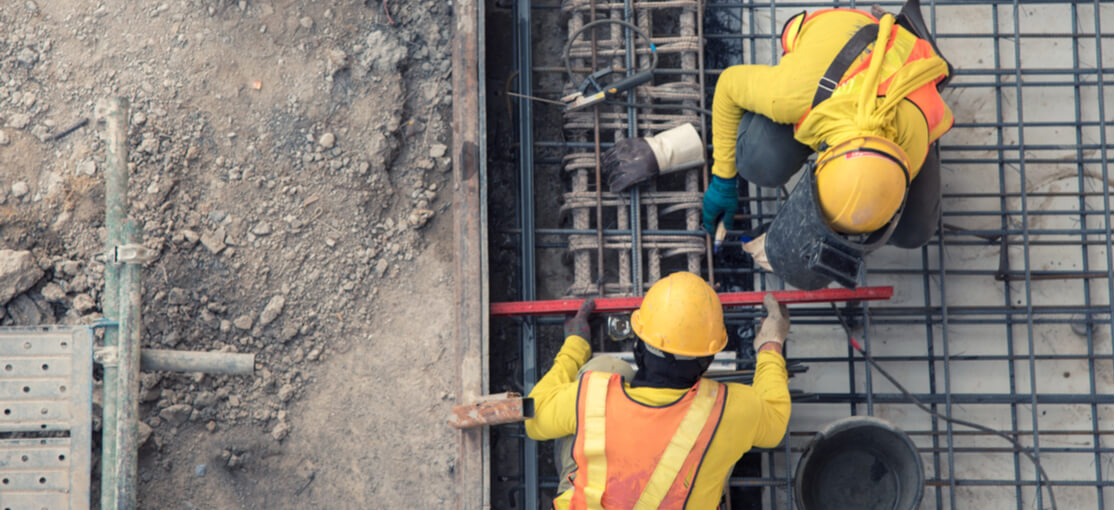
The SMB M&A Pipeline: Q4 2024
Welcome to the Q4 2024 issue of The SMB M&A Pipeline, the quarterly series that surfaces a top-of-the-funnel breakdown of…
Since its founding 18 months ago, corporate acquirer MCG Civil has closed two deals. They acquired Austin, TX-based Peabody General Contractors in October 2018 and Charlotte, NC-based Horsepower Site Services in March 2019. The latter deal was sourced through Axial.
MCG is executing a roll-up strategy focused on heavy civil construction businesses performing between $20 and $35M in annual revenue. The Denver, CO-based firm was founded out of HEI Civil, a Denver-based civil construction company started in 1973. Since the recession HEI has grown rapidly from $20 million in annual revenue to $170 million today.
We talked to Matt Lyons, Manager at MCG Civil, about why MCG is an appealing partner for construction companies, how the firm sources deals, and what trends they’re seeing in the construction space.
We are very intentionally not your standard private equity group. Dan Hudick, one of our founders and CEO, is a self-taught, very inquisitive guy who along with his partners has managed to build a $170 million business, starting straight out of high school. HEI Civil still maintains a family-owned business mentality, even at its current size. There’s an intangible aspect of understanding how a construction business owner thinks and what their priorities are. At MCG Civil, we aim to connect with business owners who may not resonate with the traditional investor who may show up to a management interview wearing a tailored suit.
There are a lot of Baby Boomers out there beginning to hit retirement age, and although the industry is getting a bit more cannibalistic, construction services businesses are still less salable assets than tech or manufacturing companies. The sector isn’t one where you see high multiples — it’s very common for businesses to sell at asset value or book value.
For these business owners, their company is as much their personal identity as anything else.
If they are going to consider a transfer of ownership, they need to trust the group of individuals leading the next phase of growth for their company. At MCG Civil we plan to provide growth opportunity for the current and future labor force as well as build upon the fine reputations of those companies that we acquire. We look for those business owners who philosophically resonate with our values. More simply put — do they promote their successes individually or as a team effort and can they be recognized for honoring their word?
We are hyper-focused on civil construction businesses with between $20 to 35 million in annual revenues in a number of markets across the U.S.: Austin, Charlotte, Tampa, Orlando, Phoenix, and Dallas. These are rapidly growing cities that usually aren’t as impacted by winter weather patterns; in this industry, rain and snow can have a very material impact on both revenue and margins. Unlike, say, a Granite Construction, which goes around the country chasing large public infrastructure projects, our businesses pursue contracts from $2 to 20 million in size and often for private owners — think residential subdivisions and industrial pad sites.
We look for companies that are leaders in their market, and which have a key employee that either lacks ownership or has a small piece that we can roll into the new entity and inspire to lead the growth initiative in the local market. Once we acquire a business, our focus is on providing back-end support, economies of scale, and technological resources — all of which provide our acquired companies with strong competitive advantages. We also look to maintain and build on the brand name and reputation of the individual contractors we acquire.
The reason we look for the size companies we do is because they’re the businesses that will benefit most from the management services we can provide. As construction services business grow larger, $50 million a year and up, they may already have a number of similar processes and procedures to the ones we typically put in place.
Once we figured out the geographic markets we wanted to focus on, it was about utilizing HEI Civil’s network of vendors and suppliers — many of which have a national reach — and getting our name out there. We utilized our strong relationships with Moody Insurance Agency, Travelers Surety, and Caterpillar Equipment. Investment banks like FMI and SDR Ventures have been great partners as well.
We also use Axial and closed our deal with Horsepower Site Services through the platform. We have a lean team, so having the ability to receive high quality, targeted opportunities in our inbox while I’m focused on other parts of the process (e.g., integration of a new acquisition, transaction management, or financing and investor relations) has been by far the biggest tailwind for us on the deal side.
Having the ability to receive high quality, targeted opportunities in our inbox while I’m focused on other parts of the process has been by far the biggest tailwind for us on the deal side.
Seller expectations are always surprising. We finance a portion of our deals through debt, and everything is based on the value of the fleet of equipment we’re acquiring. If there’s a company out there that’s looking to sell and they have a large fleet of rented equipment, meeting seller expectations is more than likely going to be near impossible. Having a strong asset value that we can go out and use our banking relationships to get financing on is instrumental to us closing these transactions. Still, the guy who has the fleet of rented equipment and is doing $20 million a year often believes that his business is worth just as much, if not more, than the guy who’s amassed a large fleet of owned equipment.
We try to make sure we establish our valuation method and the reason for it very near the beginning of the process, so we’re not wasting sellers’ time. That’s another tenet of our acquisition process — being very transparent about how we arrive at the value we do, how we’re going to structure the transaction and the purchase price, because again we’re usually working with owners who have done one thing in their life, which is own and operate this construction business that they want to sell.
We’re construction guys, and this is what we know — we’re going to continue to acquire construction businesses through ups and downs in the economic cycle, and we’re going to do our best not to get caught up in the fever pitch of this administration and the talks behind potential infrastructure spending. We closely track residential development, municipal bond issuances, and other forms of micro and macro-economic stimulus to evaluate our level of interest. But as traditional high finance and private equity has to work harder to secure good returns, and as dry powder continues to amass, I think we’ll see competition continue to look more into sectors that haven’t historically been viewed as “investment-grade.”
For these reasons, we’re seeing the construction sector, including building products and services, starting to heat up. We’re seeing a large aggregation of material providers and equipment rental companies now, but I think that construction service providers — the companies we’re buying — are also becoming more popular even for generalists.
